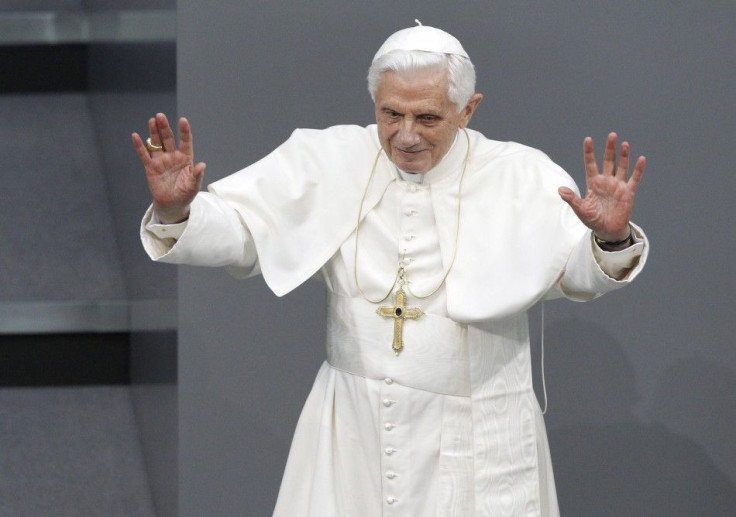Pope in Germany: Why the Visit Matters

Pope Benedict XVI is in Germany Thursday -- the third time that he has returned to his homeland since his pontification.
The trip is being hailed as an historic visit, and the Pope will speak before the German parliament, meet with Chancellor Angela Merkel and President Christian Wulff and lead a mass. About 100 parliamentarians have already boycotted Benedict's speech, and thousands of people have gathered to protest his presence.
This is not an unusual event. These days, the Pontiff is met by anti-Church demonstrations just about anywhere he goes, and he is as criticized as he is loved. In London last September, 20,000 people marched through central London, while another 80,000 attended a prayer service in Hyde Park.
So if this kind of activity is de rigueur, then what is so historic or momentous about this trip?
This biggest reason is the sex abuse scandal that has tarnished the Church, perhaps irrevocably. The abuse allegations, which have been made in Ireland, the United States, Belgium and other countries, hit Germany hard last year.
German newspaper Der Spiegel discovered that there have been more than 94 priests and clergymen suspected of sexual abuse since 1995 and in the early 1980s, and that a priest accused of abusing an 11-year old boy was allowed to resume duties with the Archdiocese of Munich and Freising, even under the eye of Pope Benedict XVI who was then known as Cardinal Joseph Ratzinger.
After being tasked with investigating abuse allegations by Pope John Paul II, Ratzinger wrote his letter of de delictis gravioribus, in which he urged bishops to keep abuse allegations and investigations inside the congregation rather than go public.
About one-third of all Germans are Catholic, and another third are Protestants in the Evangelical Church in Germany. However, more than 180,000 Germans left the Catholic Church in 2010, many over the Church's handing of sex abuse allegations.
I can understand that in the face of such reports, people, especially those close to victims, would say 'this isn't my Church any more,' the Pope told The Associated Press.
The Church is a net of the Lord that pulls in good fish and bad fish... We have to learn to live with the scandals and work against the scandals from inside the great net of the Church.
Additionally, Benedict is to meet with German Jewish leaders during his four day trip. Significant not only because it's an intra-religious dialog (the Pope is also speaking with Muslim leaders), but also because Germany, the Church and Benedict all have a tricky history with the Hebrew faith, to say the least.
Benedict has been lambasted by Jews in the past, especially for his decision to use the previously discarded “Prayer for the Conversion of the Jews” and for a 2009 decision to rehabilitate Bishop Richard Williamson, a Holocaust denier.
And, although he has been absolved for his past by the international community, it is worth noting that as a child Benedict was in the Hitler Youth.
I think it is a wonderful sign that the pope is taking time right at the beginning of his busy schedule for us, Dieter Graumann, Germany's top Jewish leader, told The AP.
It is a signal of friendship, of big-heartedness, and underlines that the relationship between the Roman Catholic church and Judaism has improved considerably in the past few decades.
During the protests in Germany so far, all the typical anti-church arguments have (justifiably) reared their heads. The church's stance toward homosexuality, birth control as well as its narrow-mindedness have all come under attack. But, Benedict has managed to avoid that sort of chaos and stay on message.
I have not come here primarily to pursue particular political or economic goals, but rather to meet people and to speak about God, Pope Benedict said during the welcome ceremony at Bellevue Castle.
© Copyright IBTimes 2024. All rights reserved.











